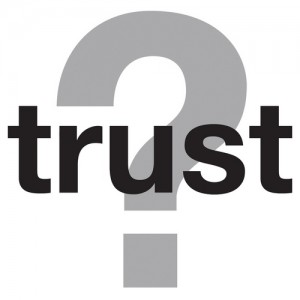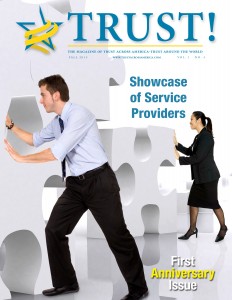“Many in leadership roles feel the need to have all the answers, while true leaders ask the right questions.” Barbara Brooks Kimmel
“LRN (the business ethics and corporate compliance firm) recently surveyed more than 900 C-suite executives and found that they were three to eight times more likely to believe that their organizations were highly values-based than the more than 35,000 less-senior employees taking part in the same study.” bit.ly/1JJ0Up8
That’s a pretty compelling argument for the disconnect between the beliefs of senior leadership and their employees, and Trust Across America sees the same pattern in its own research. The solution to closing this perception gap is very simple. Leaders must take ownership of the issue and be open to honest feedback. Until they admit, (perhaps as the New Year strikes 12) that their organizations are not, in fact values based, 2016 will bring more of the same.
Here are ten questions every authentic leader should be asking before work resumes in 2016:
- Do I consider profitability the most important measurement of trust?
- Who is more important, my customers or employees?
- What are our organizational values? Are all stakeholders aligned? How am I advancing these values?
- Are we effectively communicating our values?
- Do I walk my talk?
- Have I asked our stakeholders if they trust us?
- Is there a way out of our crisis mentality mindset?
- Do I understand the difference between compliance, ethics and trust?
- Am I leading or managing?
- Am I trustworthy?
For leaders who find this worthy of their attention, additional questions are available in this free resource on our website called The Leaders Project.
Another great resource for authentic leaders…. for the third year, Trust Across America-Trust Around the World has assembled, with the help of dozens of global experts, an annual TRUST POSTER. The 2016 theme is 52 Ideas That YOU Can Implement to Build Trust.
Barbara Brooks Kimmel is the CEO & Cofounder of Trust Across America-Trust Around the World whose mission is to help responsible organizations build trust. She facilitates the world’s largest membership program for those interested in the subject. Barbara also serves as editor of the award winning TRUST INC. book series and the Executive Editor of TRUST! Magazine. In 2012 Barbara was named “One of 25 Women Changing the World” by Good Business International.





Recent Comments